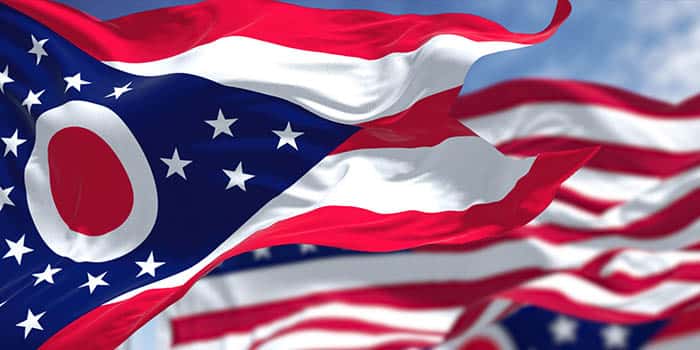The Buckeye State is toying with the idea of adding iGaming on top of its existing sports betting framework

House Bill 96 may change things in Ohio, as the state is now actively debating whether it should shed the vestiges of old and embrace innovation such as iGaming and online poker. The idea is simple – since the Buckeye State already has sports betting, add online casino and poker to round off the experience and keep players interested, and tax revenue coming in.
New Bill in Ohio Could Seek to Legalize Online Casino, Poker
Yet, such ideas are generally faced with harrowing opposition as only a handful of states in the country actually allow iGaming. House Bill 96 is still a work of theory, although Rep. Brian Stewart is working hard to make it a reality.
Ohio is debating the economic considerations of such legislation, but there is already a build-up momentum for the expansion of gambling to include online casinos and poker, with several feasibility studies and reports over the years.
Lawmakers have generally argued that by expanding into iGaming, states have collected a much higher tax windfall. However, any expansion into iGaming must be done in a manner that allows the existing brick-and-mortar gambling industry to retain its competitiveness and only complement this newly-formed landscape.
Lawmakers have also proven protective of Mike DeWine, the governor’s proposed sports betting tax hikes, indicating that they are keen to nurture the industry in a way that makes it a sustainable contributor to the budget.
However, Ohio’s gambling industry is hardly out of the woodwork, as higher taxes for sin industries are coming almost universally across the United States, as per economic predictions.
Higher Taxes on Gambling, iGaming, or Both?
Increasing tax, according to some economists, could have a better overall impact on society by reducing the rate of participation in gambling, while eliciting a much larger tax contribution for the government.
However, critics fear that by increasing taxes and making local offers unattractive, players will simply migrate to unregulated gambling markets. At the same time, it’s not clear how keen Gov. DeWine is on actually signing a bill that would expand the existing gambling landscape to also include online casinos.
The governor may not be able to push his proposed tax hikes on sports betting through the legislature, but the opposite scenario is also true – the governor has the power to veto any laws he doesn’t like.
